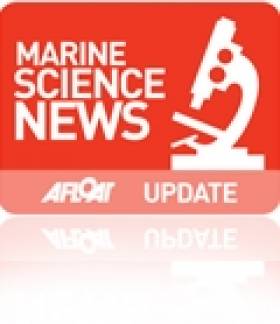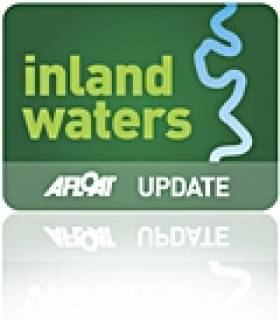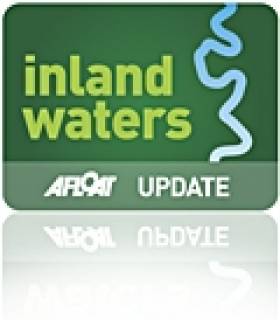Displaying items by tag: ecology
Marine Education Programme Makes a Splash
The wonders of Ireland's marine life came to the LifeTime Lab in Cork on Monday with the launch of a fortnight of school visits in tandem with the Explorers marine education programme for primary schools.
The programme aims to empower primary teachers to include marine themes in their classes via specially devised lesson plans and support services adapted to the curriculum, including in-service cources on seashore ecology, marine history, arts and crafts, and mathematics.
“The Explorers Programme focuses on Ireland’s two greatest natural resources – our vast undersea territory and our young people,” said Dr Peter Heffernan, CEO of programme partner the Marine Institute. “If Ireland is to develop a thriving marine sector in tomorrow’s world, then it will be the young people of today who will make it happen.”
The programme - which has already been rolled out to some 40 primary schools in the west of Ireland from Mayo to Clare, and in six schools in and around the capital - is a collaborative effort between the Marine Institute, Forfas Discover Primary Science, the Galway Atlantaquaria and Galway, Mayo and Clare Education Centres in the west, and the Bray Sea Life Centre and Blackrock Education Centre in the Dublin area.
Manager of LifeTime Lab Mervyn Horgan said his team was "delighted to be involved" in the pilot series of workshops.
"We are always looking for new and innovative ways of engaging in science education and raising the awareness of marine science in Cork classrooms can only bring long term benefits,” he added.
For more details visit the Explorers website at www.explorers.ie.
Inter-Agency Response to Lough Erne Weed Invasion
A new inland waterways inter-agency response to the rising levels of invasive weed growth on Lough Erne has been launched.
The Lough Erne Invasive Species Group (LEISG) brings together Fermanagh District Council, the Northern Ireland Environment Agency (NIEA), Waterways Ireland, the UK's Departments of Culture, Arts and Leisure, and Agriculture and Rural Development, among others, to tackle the threat posed by the invasive Nuttall's Pondweed.
LEISG says the weed has survived the winter "in significant quantities", and the potential for its rapid spread poses a serious concern for tourism and leisure on Co Fermanagh.
The group has recommended harvesting and weed-cutting as the most effective method to control Nuttall's Pondweed where it may interfere with main channels and access to public amenities.
Management of water levels has also been identified as playing a role in future control of the weed.
Anyone wishing to assist in weed-cutting must contract the NIEA through www.nidirect.gov.uk for permission. More information on invasive species is available at www.invasivespeciesireland.com.
'Natural Prawn Killers' Pose Threat to Irish Marine Life
Irish boatowners and fishermen on inland waterways have been urged to remain alert to the prospect of so-called 'killer shrimp' invading Ireland's waters.
The dikerogammarus villosus shrimp - which has spread aggressively throughout Europe in the past decade and was discovered in England last year - could have "dire consequences" for the biodiversity of Ireland's rivers and lakes.
Kevin Flannery of Dingle Oceanworld told the Sunday Independent: "These invasive species are very aggressive and take over from the native species - and change the whole environment and ecosystem."
The killer shrimp is larger that its native cousin, making it a more deadly predator. It is known to attack insect larvae, baby fish and native shrimp.
"The shrimp will eat the primary source of food for the trout and salmon and other indigenous species which have been here for billions of years," said Flannery.
The killer shrimp has spread mainly by attaching to boat hulls at the larval stage, promping Flannery to urge all fishermen and boatowners to disinfect their vessels before using them in Irish waterways.































































